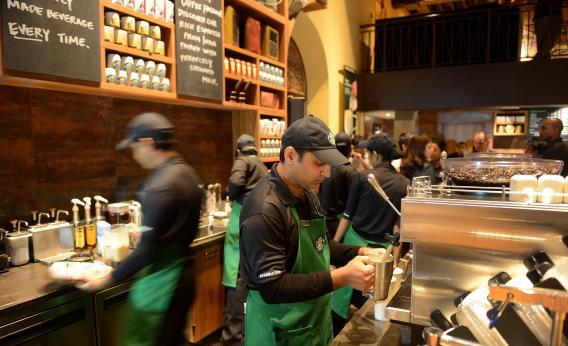It’s easy for coffee snobs to hate on Starbucks, but as this excellent Bikini Kill oral history observes it’s unquestionably been a force for coffee progress in the United States:
Washington’s coffee options were bleak. So the transplants endured Folgers from Safeway until [Tobi] Vail’s mom started mailing oversize bags of beans from home. [Kathleen] Hanna remembers when the first neighborhood Starbucks opened, “Everyone was like, ‘Corporations are taking over the world!’ and we were like, ‘Woo-hoo!’ ”
This is often the case with big chains. Barnes & Noble* or the late Borders weren’t as good as the very best independent bookstores in the country, but in the median American community their arrival was a step forward. Such is the genius of the major chain. The worst coffee shop or bookstore or whatever is the one that doesn’t exist at all, it’s only by bringing ideas to scale that you can achieve ubiquity.
The best thing about it is that by creating ubiquitous markets for higher-end coffee products, Starbucks has built a bold new American landscape where in towns all across the country people try to out-compete Starbucks by launching independent coffee shops that are superior along one or more dimensions. The bar, once set, is further raised by competition.
Correction, Nov. 19: This post originally misspelled Barnes & Noble.
